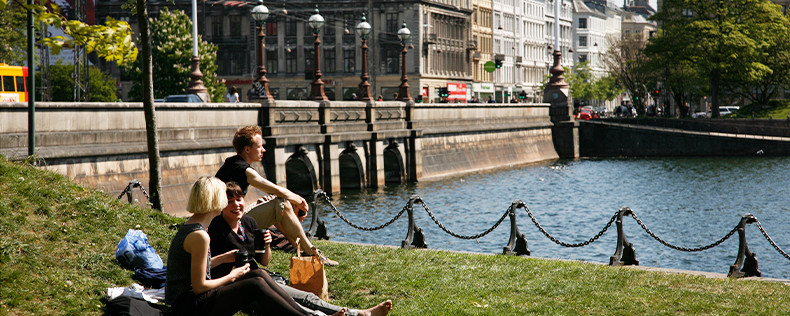Reflect on Your Sexual Health and Behavior
While you are living in a foreign culture, you may find that attitudes towards sex and relationships differ from your own culture. Therefore, whether you are sexually active or not, it is important to reflect upon your own sexual health and behavior before departing for your semester abroad. While you are abroad, being conscious of the cultural differences and taking proactive safety steps will be of the utmost importance.
Before traveling abroad, be sure to protect your own health as well as others by visiting your doctor, scheduling a sexual health check-up, and filling necessary contraceptive prescriptions. Read more about the rules of taking medicine to Denmark.
Cultural Differences
Denmark is a sex positive culture. Danes generally have a more liberal attitude toward sex than many cultures (including the U.S.) where sex is thought of as ‘taboo.’
In Denmark, sexual exploration is generally seen simply as part of growing up and finding one’s way to adulthood, and might not hold the same connotations as it would in other cultures, including the U.S. The ministry of education dedicates a week each year where all school children participate in age-appropriate sex education.
Danish teenagers commonly have their partner sleep over with the approval of their parents. DIS students are commonly surprised when their host sibling’s partner joins the family for breakfast in the morning after sleeping over, or when their college-aged peers discuss sex very openly. In adulthood, it is common for romantic couples to live together, and have children, without being married.
Consent
The concept of consent may also be different. For example, most young Danes would find it odd to go home with someone they just met at a bar, who doesn’t intend to have sex. Being conscious of these intercultural differences, as well as explicitly communicating your own intentions, is important when navigating sexual relationships abroad. Legally, the concept of consent in Denmark is similar to that of the United States, and sex without explicit consent is criminalized.
Safety Tips
DIS recommends that students utilize a few simple safety measures while in Copenhagen, on Study Tour, and while on personal travel in Europe. These tips are provided for proactive purposes only, and it is DIS policy that the victim/survivor never be blamed for their choices or actions surrounding sexual violence. No matter the circumstance, perpetrators are to blame for sexual violence and it is never the victim/survivor’s fault.
- Have an open and direct discussion about your intentions and limits
- If you are not sure what the other person wants, you must ask. Don’t guess and risk harming the other person or committing a crime.
- Review the tips for staying safe in Copenhagen
- Don’t go out alone. Pairs or small groups can watch out for one another
- Monitor your consumption of alcohol and don’t drink so much that your judgment is compromised
- Before going out, know how you will get home
- Travel home with your friends when possible, and don’t leave a friend behind
- Watch your drink and don’t accept a drink from a stranger. If someone wants to buy you a drink, take it directly from the bartender
- If you see a friend in a compromising situation, help them if you can do so safely, or ask for assistance from a bartender or the police
Sexual Health Resources in Copenhagen
Contraception
Though DIS recommends that you travel with your contraception from home, if you need to discuss a contraception option, contact your General Practitioner assigned to you through your CPR card. Read more here about how to set up an appointment.
Condoms are sold at all convenience and grocery stores. The ‘Morning After Pill’ and pregnancy tests are available at pharmacies. These items are frequently behind the counter, but do not be embarrassed to ask for them!
STD Testing
Danes generally have a relaxed view regarding Sexually Transited Infections (STIs) and Diseases (STDs). They are seen as treatable conditions, and are generally not seen as shameful. To get tested and explore treatment options:
- Visit one of the following clinics:
OR
Sexual Misconduct
DIS takes the issue of sexual misconduct very seriously. Sexual harassment, stalking, sexual assault and relationship violence are not tolerated and are a violation of the DIS Student Code of Responsibility. Students violating local laws will face the local consequences and neither DIS nor the U.S. Embassy can interfere with legal proceedings or obtain release from jail. DIS will report any incidents of sexual misconduct to the student’s home school that will handle the report per their own policies under Title IX and other relevant laws.
